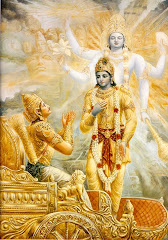
A very good read. Exciting, riveting, thought provoking.
'The Silent Monument'. The name sure is intriguing and so is the book jacket cover. And those were the very reasons I happily acquiesced to review this book. This is Hong Kong based author Shobha Nihalani's second novel... and the first to be published in India.
The Blurb: The Silent Monument is a thrilling tale of an age-old scroll discovered in the hidden chambers of the Taj Mahal - one of the seven wonders of the world.
The journalist (Parag Saxena) who finds the ancient artifact is murdered. His feisty widow Manzil is suddenly burdened with the deadly secret, the contents of which could rock the nation. She becomes the most wanted person in the country.
Methinks: Thrilling it sure is, nicely interwoven with history and modern day politics. The narrative moves forward at a brisk pace yet do not overwhelm... nor it prods you towards the surreal. It does not call for the (un)willing suspension of disbelief either. TSM is not in the whodunnit format. I think that the graph of such a novel drops when the motives are revealed towards the end. Whodunnits don't have much of a repeat value once we know what the mystery is all about. Here the author has taken pains to cover a wide gamut of emotions and events while weaving the plot. It takes guts to write a novel that combines an ancient scroll, history, culture, religious conflict, vested interests, a secret organization, deadly assassins, archaeologists, police, and politics over religion. With an attractive dancer, a beautiful widow and powerful underworld dons thrown into the mixture. Plus it raises some pertinent questions. It takes talent to make such a novel a page-turner. Kudos to Shobha for having achieved that!
But before you jump to any conclusions let me state that 'The Silent Monument' is not the Indian version of 'The Da Vinci Code' or 'Angels & Demons' ... nor is Shobha Nihalani India's answer to Dan Brown. Both have distinctive styles of writing and the plots differ. Yet there are echoes. And Shobha Nihalani is certainly not the Shobhaa with an extra 'a' whether night or de *wink*
The plot is not physically very deep. Metaphorically, yes. But then as best-selling British crime writer Peter James says, "A shallow grave works better than a deep one."
Why did Parag have to die? Why is Manzil being hunted? What is the explosive secret hidden in the scroll... that if revealed will prompt people to kill each other? What is the role of the Indian Institute of Archaeology (IIA)? What is the archaeologist Mahesh Bhakti's agenda? Who is KD and who or what is the 'Onyx'? What do they want? Why are the two dons, the two modern gods – Deva and Khanbaba – involved? What are their interests and their modus operandi? What is the 'Yuva'? What will the Police officer - Yadav - do? How is the media involved in this cesspool? What is the filmmaker's role? What will Manzil do? What is the message at the end of the novel? What happens to the scroll?
Questions, questions! Read the book to find out.
A Deeper Analysis: Don't read The Silent Monument as just another exciting thriller. Read the book for its engagement with issues and events that are not usually spoken about in fiction, and for its interest in a big city's little people. Also... it raises certain critical and uncomfortable questions that we need to ask ourselves and to each other. Now.
It meanders between the power dynamics of the underworld, conflicts between religions/faiths and the larger plot of a nation's identity and heritage. What the dangerous threesome between politics, power and religion has achieved over the years. The Taj Mahal is the metaphor.
The Taj Mahal... the near ethereal monument of love built by the Mughal Emperor Shah Jahan in memory of his favourite and beloved consort Mumtaz Mahal... who passed away due to anemia while giving birth to their 14th child in an 18/19-year marriage. Has the whole dreamy, romantic angle twisted history and hidden certain uncomfortable facts successfully? Is the Taj Mahal named after Mumtaz Mahal (real name Arjumand Banu Begum/Mumtaz-ul-Zamani)? But isn't that too far fetched? What about the architecture that tells a different story?
Apparently... more than 20,000 workmen/craftsmen toiled for 22 years to build the Taj. With the Maharaja of Jaipur sending the marble as a gift to the Mughal Emperor. But no traveler including the ones from Europe has ever mentioned about something being built on such a large scale in any of their chronicles.
The structure that is today known as the "Qutub Minar" was supposedly built by the Emperor Chandragupta Vikramaditya... the greatest Emperor of all times... to commemorate his conquest of Arabia (ancient Arvasthan, 'arva' in Sanskrit means a horse and 'sthan' means place/land. 'Arvasthan' signifies a land of horses, and as we all know, Arabia is famous for its horses). His empire stretched from Bali to Turkmenistan... and Bactria.
However... today the same structure is known as the "Qutub Minar" after Qutb-ud-din Aibak... one of the generals of the marauding conqueror Mohammed of Ghor, who ruled the far north from the Sultanate of Delhi... and established the 'Slave Dynasty'. How come breathtaking pieces of architecture, beautiful monuments, forts and buildings came to be regarded as the legacy of the marauding conquerors who came on horse backs from the east and the west... and left behind devastated cities and rotting corpses? How is it that the places they came from do not boast of such architectural marvels?
History is generally ignored and considered to be burdensome by most of us. Is history a past and closed chapter? Or is it work-in-progress? When we celebrate a new year... is it really a new year? Or is it history carried forward? Is it mere coincidence that both yesterday (the past) and tomorrow (the future) is referred to as 'kal'? And 'kal' (the past), 'aaj' (the present) aur 'kal' (the future) are strung together.
Does a nation's history affect the psyche of its people? Do people who are repeatedly told that they were conquered by outsiders and subjugated for centuries grow up with a different psyche/psychology compared to people who learn that 'they' had ruled and 'civilized the world’? I sometimes wonder... why are we strangers to our own glorious history. Why folks belonging to nations whose own history is but a few hundred years usually write the history of our country or the 'extinct' civilizations. And somehow... our history never goes beyond the British and the Mughals, with a smattering of French and Portuguese thrown in here and there. And the Dutch... for garnishing perhaps! As for the great Emperor Chandragupta Vikramaditya... we have successfully reduced him to 'Vikram and Betal'.
But I digress.
Does history speak? Or is history made to speak what the 'forces of history' wants to hear? Can we or should we correct the anomalies? Or should we let the past remain buried in the dunes of time... for the sake of peace? Is the 'unity in diversity' mantra hollow? Can Indians view events, people and history objectively without 'colouring' them? Or will it always be 'Us' Vs 'Them'? Can it ever be 'Ours'? Can we ever become proud Indians? Is there hope? Can Gurudeb Rabindranath Tagore's dream of a free and glorious India ever become a reality? Shall we ever awake to an India that will live up to his following immortal words... or will it remain a fantasy... a mirage?
Where the mind is without fear and the head is held high
Where knowledge is free
Where the world has not been broken up into fragments
By narrow domestic walls
Where words come out from the depth of truth
Where tireless striving stretches its arms towards perfection
Where the clear stream of reason has not lost its way
Into the dreary desert sand of dead habit
Where the mind is led forward by thee
Into ever-widening thought and action
Into that heaven of freedom, my Father, let my country awake.
My rating: I will give it a very good 4.25/5.
The printer's devil has not been able to do much damage. Whatever little it has... can be ignored. The production quality of the book is pretty good and the book jacket cover is the star attraction. It piques your interest and captures your attention instantly... while the narrative sweeps you up in its fold. I liked the language in which this book has been written. Not simple, not flowery... but erudite, yet easy to understand. Which makes it a pleasure to read. No wonder it has made it to the top 10 in the bestseller list (in the Fiction category) consistently since January 2011. Happy reading!
Shobha is one author to watch out for. I am waiting for her next book with high expectations.
The Author's blog: Shobha Nihalani: Meanderings
Details of the book: Author: Shobha Nihalani/ Publisher: Tara Press/ Edition: 2010/ Language: English/ ISBN-13: 9788183860994/ ISBN-10: 8183860990/ Book binding: Paperback/ Price: Rs. 250/ No. of pages: 304.












Well the story sounds interesting. About the other things relating to history.. I really dont know. Afterall isn't history anyway a chronicle of the powerful? I had read another book called "Jahanara" which hints at an incestous relationship between Shahjahan and his daugther. So the Taj Mahal and the emperor's love for Mumtaz Mahal are defined within a context..
ReplyDelete